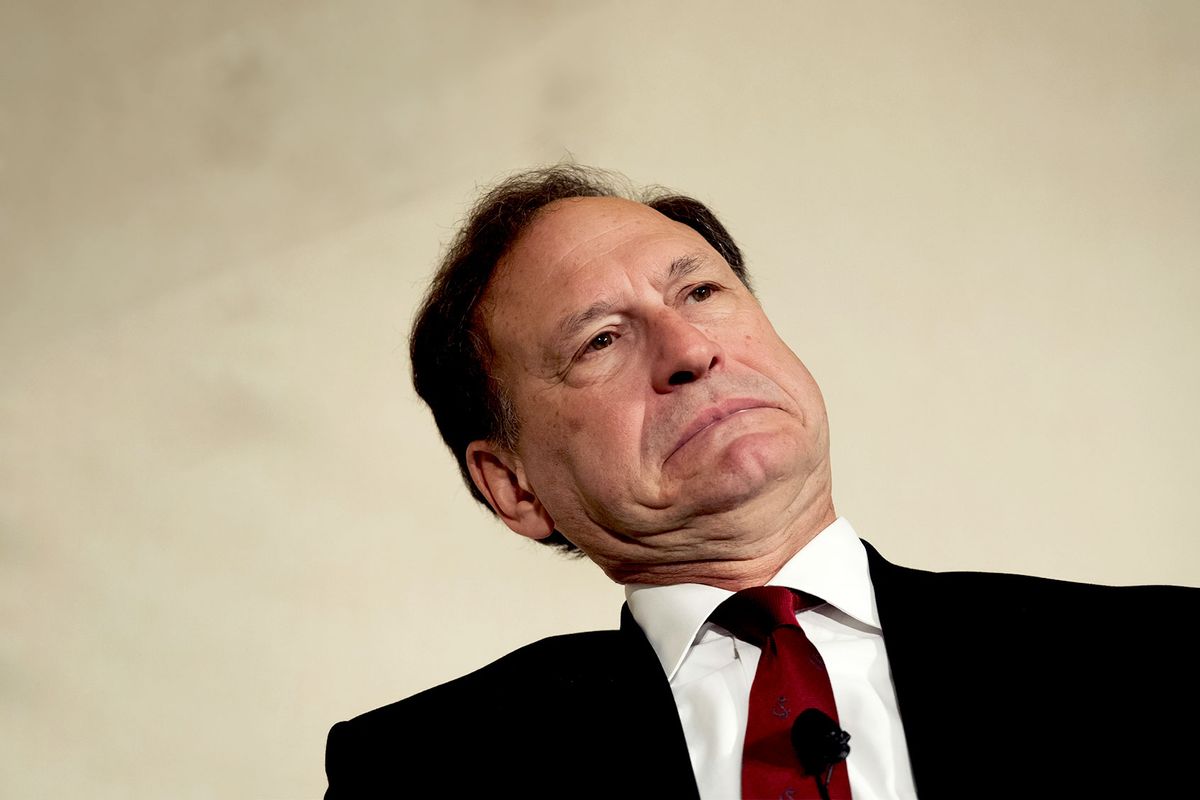While Supreme Court Justice Samuel Alito is a downright scholar in obscure symbolism on the American right, he's less than hip on modern trends in pornography.
The conservative justice and Donald Trump confidant heard oral arguments in Free Speech Coalition v. Paxton, a case challenging a spate of red-state laws that block internet users from pornographic websites without first verifying their age. Seeking to get a grasp on the overall content of some of the websites that were pushing back against the laws, Alito asked if anyone looked at websites like Pornhub for the articles.
Free Speech Coalition attorney Derek Shaffer noted that several of the websites feature non-pornographic content in their blogs and podcasts, leading Alito to ask if any public intellectuals are well-known for their work on the adult tube site.
"Is it like the old Playboy magazine, you have essays there by the modern-day equivalent of Gore Vidal and William F. Buckley Jr.?" Alito asked.
Shaffer didn't want to stretch the truth, balking at both Alito's repeated guesses as to what percentage of Pornhub was pornographic and his hypothetical haven of internet-age literati among the smut.
"Not in that sense, but in the sense you have wellness posts about women recovering from hysterectomies and how they can enjoy sex," Shaffer offered.
Pornography has a history at the Supreme Court, frequently prodding and testing the edges of free speech laws. A good chunk of the middle of the last century was spent getting a handle on the famously hard-to-define idea of obscenity. Justice Potter Stewart muddied the waters significantly in 1964 when he defended the right of theater manager Nico Jacobellis to show the Louis Malle film "The Lovers." Writing a concurrence with the majority opinion that found screening the film was protected by the Constitution, Stewart said of obscenity, "I know it when I see it." A stricter test was devised in 1973's Miller v. California, a three-pronged question to help define obscene materials under the law that's still in use today.
Whether or not websites can be compelled to verify the ages of their users has been taken up by previous courts. In 2004, the Supreme Court narrowly ruled that the requirement was unconstitutional and violated the First Amendment.



Shares